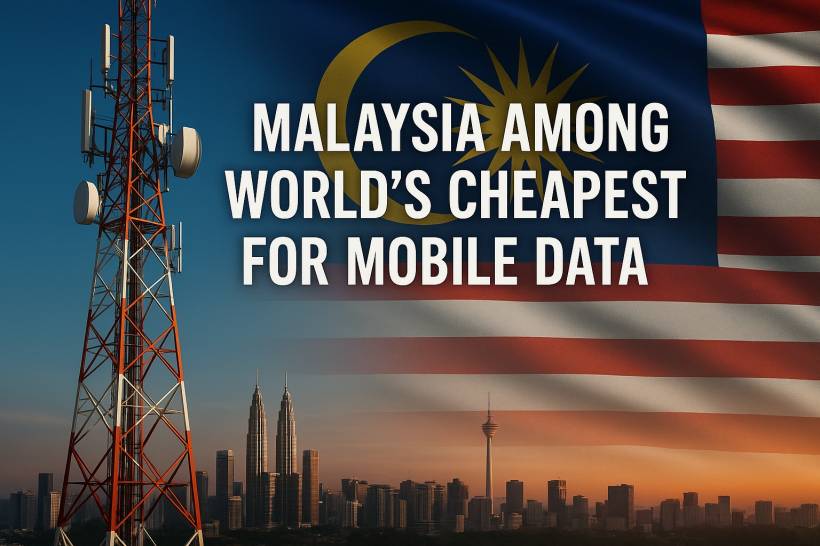When Malaysians say our mobile data is "murah gila," it turns out they're not exaggerating. In fact, Malaysia is now officially ranked among the world's most affordable countries for mobile internet, according to Communications Minister Datuk Fahmi Fadzil. This isn't just a minor brag — it reflects a deeper story about policy shifts, industry cooperation, and a rapidly evolving digital ecosystem.
Let's unpack what this means for everyday users, the telecom industry, and Malaysia's long-term digital ambitions.
One of the World's Lowest Costs Per Gigabyte
During a session with Malaysians in Azerbaijan on 16 November, Fahmi highlighted something many of us might overlook: the actual cost per gigabyte (GB) of mobile data in Malaysia is among the lowest globally.
To put it simply:
For comparison, many countries still pay 10 to 50 times more for the same amount of mobile data. This affordability isn't accidental. It's the result of operators simplifying their plans, the government pushing for fair pricing, and a national digital strategy that puts accessibility at the core. The goal is straightforward: make sure every Malaysian — whether in KL, Bau, Tawau or Pulau Ketam — can afford to stay connected.
The 5G Rollout: Fast, Aggressive, and Surprisingly Successful
Affordability is one thing, but speed and performance matter too. And here's where Malaysia has made another major leap.
Fahmi highlighted that Malaysia now enjoys:
This isn't just marketing hype. The reference point comes from Opensignal's 2024 Asia Pacific Mobile Network Experience Benchmark Report, which ranked Malaysia highly for both 5G upload and download performance. While we still trail Singapore in coverage and availability, the speed and stability improvements over the past two years have been remarkable.
This rapid progress reflects a more aggressive rollout approach — with towers being upgraded and activated at a pace the minister himself described as "exceptionally rapid." What used to take a decade now happens in one to two years.
A Telecom Sector That's Finally Working Together
One of the more surprising insights Fahmi shared was about the industry's internal cooperation. Historically, Malaysia's big telcos have had a reputation for moving slowly, each prioritising its own strategy. Getting all major players to agree on pricing, infrastructure, or spectrum usage was often painful.
That dynamic has changed.
The minister noted that the last few years have seen unusually strong collaboration among telcos — something that rarely happened before. This alignment has enabled:
When telcos stop pulling in different directions, the rollout naturally accelerates — and consumers feel the impact through cheaper data, faster speeds, and improved network stability.
What's Next for Malaysia's Connectivity Future?
While the current stats are impressive, it's worth noting that Opensignal has not yet released its 2025 report. Performance and rankings could shift as neighbouring countries continue upgrading their networks.
Still, Malaysia's trajectory is promising. The combination of low data prices, strong 5G performance, and improved industry collaboration signals a future where:
If the momentum continues, Malaysia could evolve from simply being "cheap for data" to becoming a regional benchmark for mobile connectivity quality and affordability.





Comments